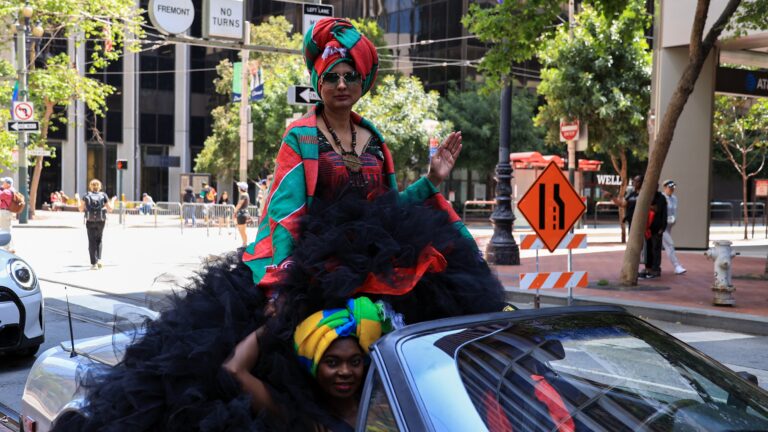Top lists of films often prompt the question: why these of all films? Who is to say what a good film or the best film is? In compiling this list, The Budapester tried to consider its editors’ subjective opinions, as well as the top lists on film platforms that have been voted on by thousands of people. These ten famous Hungarian films below are not ranked, so it is completely left to the readers to decide which would rank where in their view.
Cat Catcher (Macskafogó)
The Budapester’s personal favourite is an animated film that is quite inescapable in Hungarian film history, and not many Hungarian people have not seen it. Cat Catcher, directed by Béla Ternovszky and released in 1986, is an animated crime comedy that has been a great success in Hungary and abroad.
In the movie, on the imaginary Planet X, bloodthirsty cats flout the law and work to eradicate the mouse society. However, there is a glimmer of hope when the mice’s chief scientist discovers a solution. The intelligence service immediately activates its best agent, Grabowsky, to get the blueprint to the target in time…
MACSKAFOGÓ Előzetes (1986) Digitálisan felújítva
No Description
Sátántangó
The setting of Sátántangó is a backwater place, where the characters live their lives monotonously and disillusioned. All of them are waiting for a Messiah who can change their destiny, so they start to believe in Irimiás in the hope of a better future, who, however, turns out to be a false prophet. Redemption fails and there is no way out of their hopelessness, but the ending of the film is still uplifting and unforgettable.
Premiered in 1994, the film is directed by Béla Tarr and is his third collaboration with his friend, author László Krasznahorkai, whose eponymous novel of served as the basis of the movie.
No Title
The new restoration of Béla Tar’s Sátántangó is now playing in our Virtual Cinema. This screening purchase will support FLC, and help us in our mission to remain a vibrant center for cinema culture once this turbulent period is behind us. This offer is for a limited time only.
Hyppolit, the Butler (Hyppolit, a lakáj)
This comedy is regarded as one of the biggest box-office hits in Hungarian film history. In the story, the character of Mátyás Schneider (Gyula Kabos) is a wealthy haulier whose wife hires a new butler, Hyppolit (Gyula Csortos). The butler introduces a new order into the household—one previously learned from the aristocrats—, which, however, Mr Schneider does not like and does not give in to easily.
The black-and-white film comedy was first premiered in 1931, directed by István Székely.
Hyppolit, a lakáj (Székely István, 1931, előzetes)
Uploaded by Nemzeti Filmintézet – Filmarchívum on 2020-06-22.
The Witness (A tanú)
– God brought you, my son.
– In a black car, Father.
The film satire directed by Péter Bacsó is perhaps the most cultish Hungarian film, a unique portrayal of the excesses of the Rákosi era, the absurdity of show trials, and the impossible expectations symbolized in the film by ‘the new Hungarian orange’ [which is actually a lemon]. Interestingly, the censorship of the 1960s did not prevent the 1969 film from being made, although it was never allowed to be premiered at the time, and was released only ten years later, in 1979.
The story is set in 1950, when the film’s protagonist, József Pelikán, a Danube dike keeper, commits a crime by illegally slaughtering the family pig, Dezső. József is sent to prison where Comrade Virág ‘takes care of him’.
No Title
THE WITNESS / A tanú Trailer The Witness is set in the Rákosi era during the 1950s. D..e-reeve József Pelikán lives with his large family on the d..e. One day he comes across a poacher fisherman who turns out to be an old friend, Zoltán Dániel, who was made a minister of state in 1949.
Son of Saul (Saul fia)
Directed by László Nemes Jeles and starring Kossuth Prize winner Hungarian actor Géza Röhrig, the film was a defining work in the Hungarian film industry in 2015. The film won the Grand Award at the Cannes Film Festival, then went on to win the Golden Globe for Best Foreign Language Film at the Golden Globes, the first Hungarian film to do so,
and won the Academy Award for Best Foreign Language Film at the Oscars as well.
Breaking with the ‘usual’ style of Holocaust-themed films, the Son of Saul does not present the plot with beautiful images and touching threads but rather brings the reality of the hell of the concentration camps close to the viewer.
The protagonist, who is forced to work as a crematorium worker, recognizes his own son in one of the dead children and decides to save the child’s body from cremation and bury it in accordance with Jewish tradition, with the help of a rabbi.
No Title
Nézd meg a filmet a Cinegón! – https://cinego.hu/filmek/saul-fia Nézd meg a filmet online! – https://goo.gl/FTxubS Június 11-től a mozikban! CANNES-I NEMZETKÖZI FILMFESZTIVÁL 2015 – Négy díj: Grand Prix – Nagydíj A Nemzetközi Filmkritikusok Díja (FIPRESCI-díj) Vulcan-díj Zányi Tamás hangmérnöki munkájáért Francois Chalais-díj A náci koncentrációs táborokban a foglyokból álló Sonderkommando terelte be a megsemmisítésre ítélteket a gázkamrákba, vitte át a holttesteket a krematóriumokba, takarította ki a termeket az újabb transzport érkezése előtt és szállította ki a hamvakat a táborból.
The Fifth Seal (Az ötödik pecsét)
The title of the film refers to the fifth seal of the biblical book of the Seven Seals, which reads as follows: ‘And when he had opened the fifth seal, I saw under the altar the souls of them that were slain for the word of God, and for the testimony which they held’ (Rev 6:9).
The drama, which premiered in 1976, is a film adaptation of the novel of the same name by Ferenc Sánta, adapted for the screen by director Zoltán Fábri. The movie’s protagonists are forced to make a life-and-death decision after an argument in the pub about the moral issues they had pleasantly discussed over a few glasses of wine only a few hours earlier.
You can learn more about the film by reading a fascinating review of it by one of our excellent contributors, Lili Zemplényi.
Az ötödik pecsét – játékfilm, részlet (1976)
Uploaded by Nemzeti Filmintézet – Filmarchívum on 2020-07-31.
The Boys of Paul Street (A Pál utcai fiúk)
The drama film released in 1969, is based on the world-famous novel by Ferenc Molnár and directed by Zoltán Fábri. Most know the story well: a gang of young boys playing in the afternoons on Paul Street learn that another gang, the Red Shirts, hanging around the botanical garden, are preparing to take over their territory led by the fearless Feri Áts.
Pál utcai fiúk (1969) – magyar előzetes
No Description
Liza, the Fox-Fairy (Liza, a rókatündér)
Liza, the Fox-Fairy is a film by Károly Ujj Mészáros, released in 2015, a romantic comedy based on Japanese mythology.
Set in ‘Csudapest’, the capital of a fictionalized 1970s Hungary with a capitalist system, Liza works as a nurse to the widow of the Japanese ambassador. When she is given a day off for her birthday, she is determined to find the love of her life, but all things go wrong, which is further exacerbated by Liza’s wild and unrealistic imagination.
LIZA, A RÓKATÜNDÉR (Official trailer HD)
Február 19-től a mozikban! (with optional english subtitle)
We Never Die (Sose halunk meg)
Uncle Gyuszi—played by Róbert Koltai, who is also the director of the 1993 film—is a coat hanger peddler and a real womanizer, who takes in his nephew Imi for a summer to make a real man out of him. He shows him the mysteries of life and offers him freedom. One thing is certain: no one on the movie screen has ever been so good as the protagonists at munching on krémes, the famous Hungarian type of Custard Cake.
SOSE HALUNK MEG Előzetes
SOSE HALUNK MEG Előzetes Gyuszi bácsi, a nagybácsi, magával viszi Imit, az unokaöccsét vidéki vállfaárusító körútjára. A szülők félnek a születésnapi ajándéknak szánt kirándulástól, és okkal. Gyuszi bácsi a vonat indulása után meghúzza a vészféket és fut Imivel az ügetőre.
Moscow Square (Moszkva tér)
Moscow Square cannot be left out of the list, as it is one of the most influential pieces of the post-war film industry that has become a true cult classic with its unique portrayal of the Budapest atmosphere of the 1990s.
The film takes place in 1989, the year of the regime change, when the protagonist, Petya, turns 18. However, despite the historical events taking place in the country, Petya and his friends, who are about to graduate from secondary school, are not interested in politics at all, but rather in the fact that life is about to really begin…
No Title
MOSZKVA TÉR a Filmio kínálatában! https://bit.ly/3HOykIq Budapest, 1989. A 18 éves Petya az érettségi előtt áll. Indul a nagybetűs élet, és egy ország is új életet kezd. Török Ferenc érettségiző hősei nem reménytelen, a történelemnek kiszolgáltatott alakok. Ironikusak és játékosak – sorsuk akár jót is tartogathat nekik.
Related articles:
Click here to read the original article.








